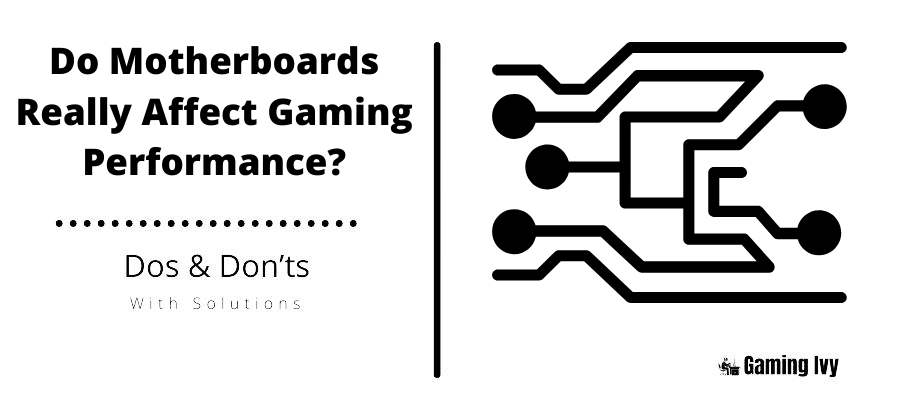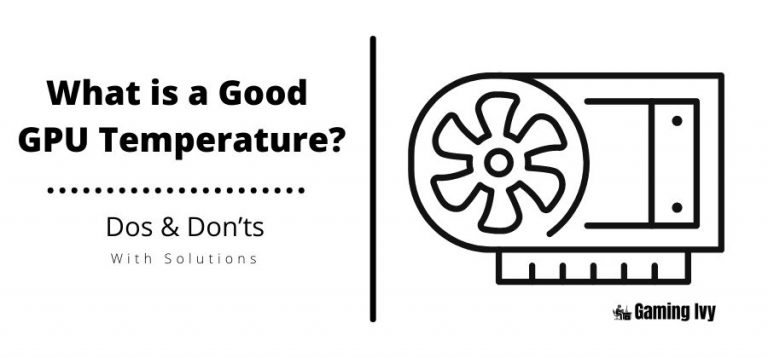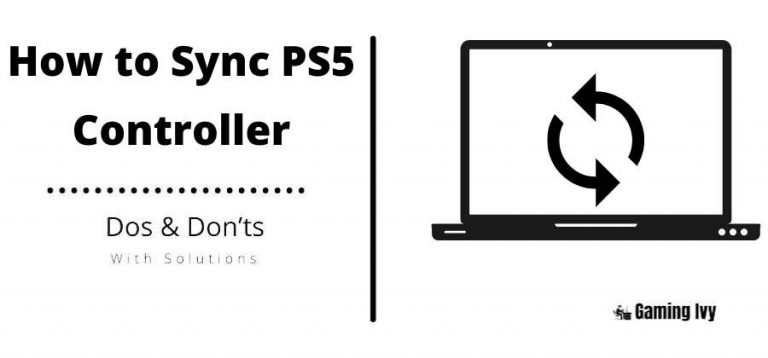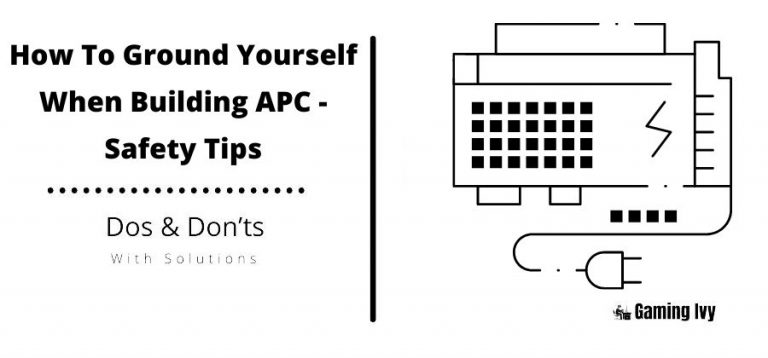Do Motherboards Really Affect Gaming Performance?
When gamers are hard at work building the most excellent possible gaming setup, it’s not uncommon for them to grab the first random motherboard they come across that is reasonably compatible with their RAM and CPU.
However, did you realize that choosing the correct motherboard for your processor significantly impacts your gaming performance?
In today’s brief tutorial, we’ll dive into the realm of motherboards to learn more about what they are, what they do, and how they affect your gaming experiences.
Let’s get started!
Table of Contents
What In Is A Motherboard & What Does It Do?
Now, most gamers are relatively tech-savvy, but just in case you’re not up to date on today’s technological breakthroughs, let’s take a moment to refresh your memory on the essentials.
A motherboard, also known as a MOBO/Mainboard/PCB, is a large circuit board that links all of the components in your computer and allows them to work together as a single system.
The motherboard, for example, is the component that allows the CPU (processor) and RAM (memory) to connect. It’s the same with your hard discs, GPU (graphics processing unit), and so on…
In a nutshell, it’s your machine’s brain!
How Do Different Motherboards Affect Gaming Performance?
Let’s get back to the subject at hand now that we’ve reached the lay of the land. That is, we’ll talk about how particular motherboards can influence your gaming sessions positively or negatively.
Part Compatibility
The first and most obvious consideration is compatibility. The motherboard you purchase should be compatible with the main components of your design, primarily your CPU and RAM.
In addition to being compatible with your main components, the motherboard should also support the accessories you’ll be using.
For example, if you wish to use one of the BlueTooth adapters that operate on the USB3.0 platform to connect a wireless keyboard or headset, you’ll want to ensure it has integrated USB3.0 slots.
But how do you know if your main components and peripherals can all be combined into a single gaming rig?
Thankfully, today’s internet of things has a plethora of fantastic solutions to assist you in doing just that. PCPartPicker is the one we all use a lot here at FragMeta when we’re evaluating new PC builds!
Overclocking
Following that, once compatibility has been established, you’ll want to make sure the board you choose has some excellent overclocking capabilities.
Overclocking has a direct impact on your gaming performance because it allows you to boost your PC’s natural performance, making the game run smoother (raising the average FPS margin), increasing overall runtime stability, and delivering a better overall experience.
The challenge is to avoid being fooled by a low-cost “budget” motherboard that claims to have overclocking capabilities. In most circumstances, the power will be nil to none, or you may even risk frying your entire setup if done incorrectly. And that’s not something you’d want to deal with to save $50-60 on your motherboard.
High-end motherboards have more stable clocks and a higher grade OC at the end of the day. It’s also a good idea to check for motherboards with controlled voltage (VRM), as this can protect the rest of your components from being fried if something goes wrong later.
The Chipset
Let’s talk about the chipset and its role now that we’ve covered the two most prominent factors that can affect your in-game performance when it comes to different motherboards.
When it comes to sending data back and forth between the CPU, RAM, and other peripherals on your PC, the chipset on your motherboard acts as a sort of “regulator.”
The chipset is effectively divided into the north and south bridges.
The northbridge controls communication between your system’s core components, as well as PCI-E peripherals like your GPU. And it should go without saying that it is critical to any motherboard’s overclocking capability.
On the other hand, the southbridge is significantly less intriguing because it primarily handles data input and output for USB devices, the BIOS, and other components.
Both bridges, however, work together to form a single system, the efficiency of which is critical when it comes to the overall performance of your PC.
How To Choose The Best Motherboard For Gaming Performance?
Now that you know a little bit more about motherboards and how they affect your gaming performance let’s talk about a few crucial aspects to keep in mind when choosing the ideal motherboard for a gaming PC that will allow you to crush your opponents in games like League of Legends like it’s nothing.
Focus On The CPU
The CPU is the most critical component to consider when getting the most power out of your motherboard and gaming PC as a whole.
You’ll want to go for one of the most recent CPUs, as they offer excellent in-game performance. And once you’ve decided on one, you’ll need to discover a motherboard that’s compatible with it.
Pick ARAM That’s Compatible
The second thing to remember is that you’ll need some good RAM to support that great CPU you’ve chosen.
Most motherboards these days support 32GB or 64GB of RAM. While it may be tempting to spend a lot of money to have the finest of the best. You’ll rarely (if ever) require 64GB of RAM for gaming.
So, with that in mind, I’d suggest saving some cash and getting 32GB of RAM to buy a better CPU. A better mobo, or some of the fancy peripherals you’ve been eyeing.
Don’t Forget The Expansion Slots.
Don’t forget that expansion slots are where you’ll find the majority of the critical peripherals you’ll need for a flawless gaming session, such as a strong graphics card or some solid-state storage.
At this point, you should double-check that the motherboard you’ve chosen is compatible with the graphics card you desire. While it’s typical to see individuals forego acquiring an SSD for their gaming system these days. I strongly suggest you do so, as M. 2 drives will save you a lot of time, lag, and irritation in the long run.
Closing Thoughts
While most people don’t care which motherboard they should choose for their gaming PC. The motherboard does have an important impact on your finite gaming performance.
In today’s article, we’ve gone over the basics of what a motherboard is, what it performs, and how different motherboards can improve or degrade your gaming performance.
We’ve also offered some essential insights. And the most crucial elements to look for while searching for a motherboard for your future rig are to assist you in selecting the most delicate possible motherboard for your future rig.
If you learned a new thing about Do Motherboards Affect Gaming Performance? Today, then please don’t forget to share this article with others. If you have any questions or suggestions for us. Please feel free to write them in the comment section down below.
Thanks






